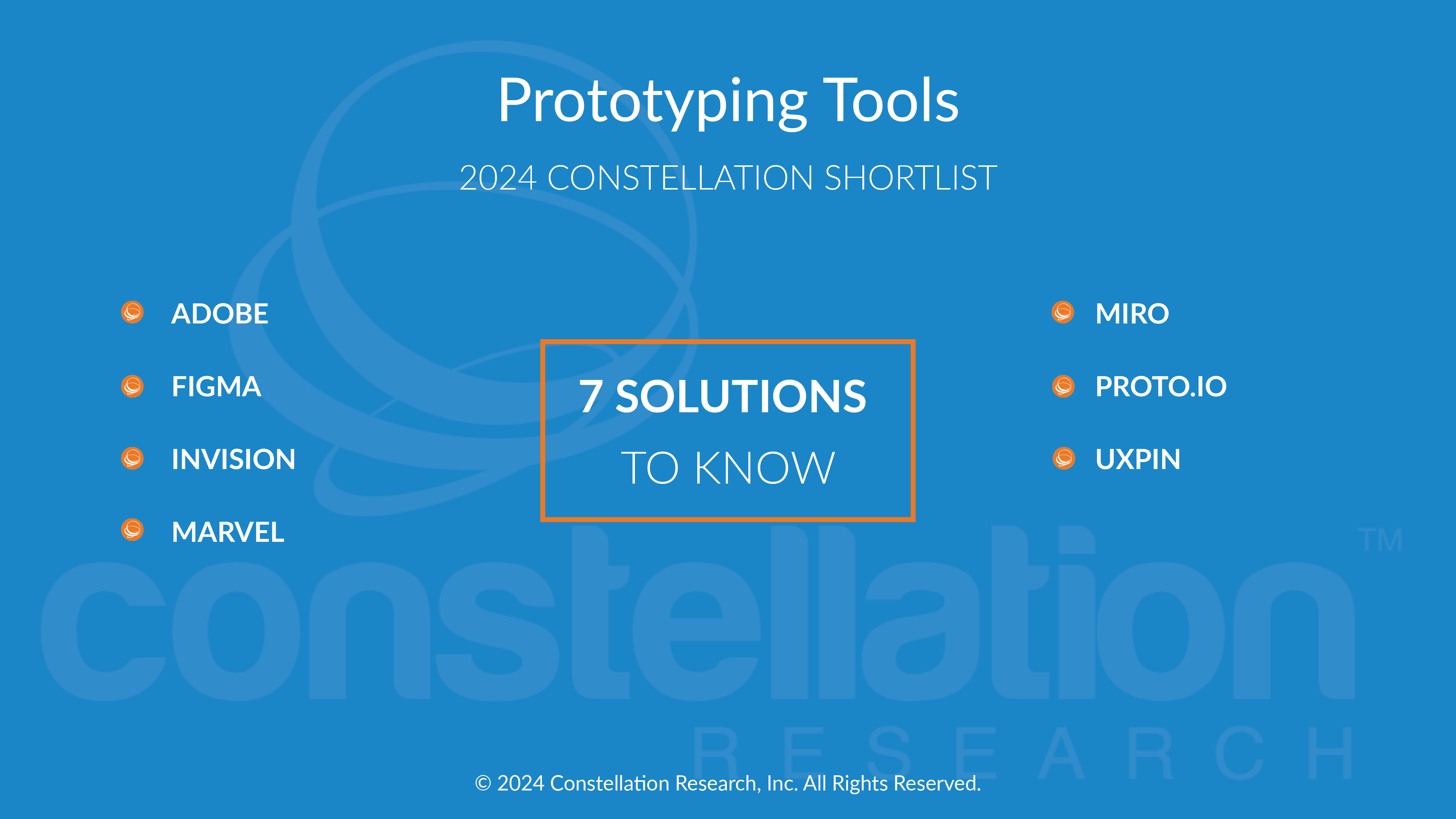
About This ShortList
In today's fast-paced design world, where speed and iteration are crucial, Prototyping Tools have emerged as game-changers. This market, projected to reach $4 billion by 2027, empowers designers, developers, and stakeholders to translate ideas into tangible, interactive prototypes without writing code.
Prototyping tools are the antidote to communication gaps, costly mistakes, and slow development cycles in the design world. They tackle these problems by creating interactive, tangible versions of ideas before any code is written. This allows for early feedback and iteration, ensuring the final product aligns with user needs and avoids expensive fixes later. Prototyping tools also bridge the gap between designers and developers by offering a shared visual language, fostering collaboration and a clear understanding of the vision. Essentially, they act as a creative playground where ideas can be tested, refined, and validated quickly—setting the stage for successful user-centric design outcomes.
Threshold Criteria
Constellation considers the following criteria for these solutions:
- Drag-and-drop interface: Build prototypes visually without needing to code, accessible to designers and non-technical users.
- Reusable components: Create and store reusable UI elements for consistency and rapid prototyping.
- Interactive elements: Add interactive features like buttons, forms, and transitions to simulate real-world user behavior.
- Collaboration tools: Share prototypes with stakeholders, gather feedback, and iterate collaboratively.
- Version control: Track changes to prototypes and easily revert to previous versions.
- Smart component libraries: AI suggests relevant UI elements based on context and design patterns, accelerating the prototyping process.
- Automated user testing: AI-powered tools can analyze user interactions with prototypes, providing valuable insights into usability.
- Personalized prototyping: AI can personalize prototypes based on user data, creating targeted experiences for specific segments.
The Constellation ShortList™
Constellation evaluates more than 15 solutions categorized in this market. This Constellation ShortList is determined by client inquiries, partner conversations, customer references, vendor selection projects market share and internal research.
- Adobe
- Figma
- InVision
- Marvel
- Miro
- Proto.io
- UXPin
Frequency of Evaluation
Each Constellation ShortList is updated at least once per year. Updates may occur after six months if deemed necessary.
Evaluation Services
Constellation clients can work with the analyst and research team to conduct a more thorough discussion of this Constellation ShortList. Constellation can also provide guidance in vendor selection and contract negotiation.


